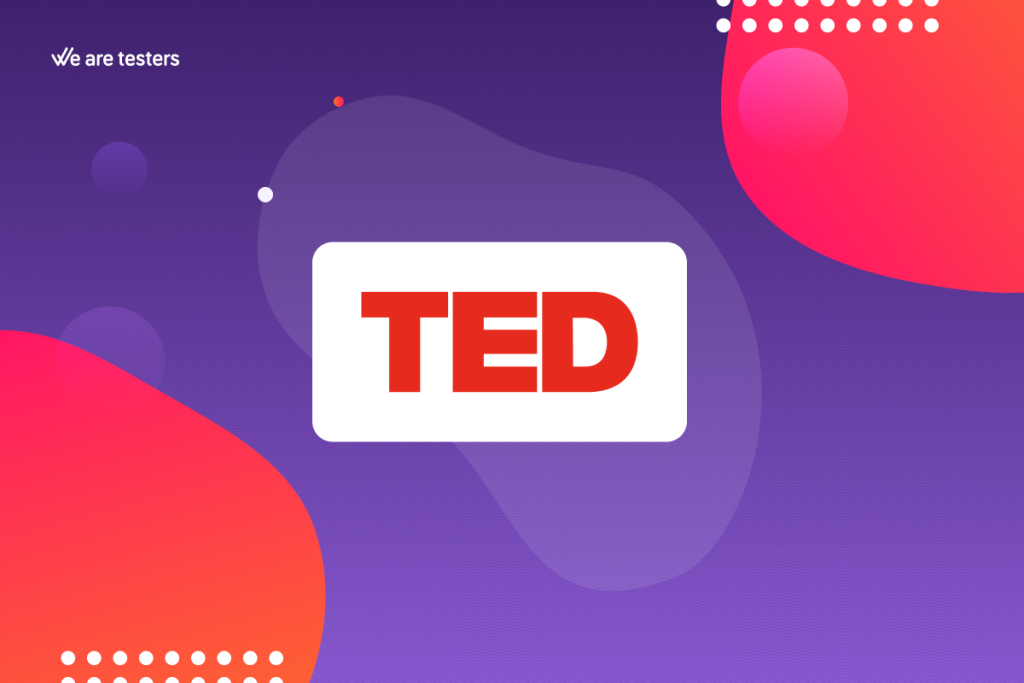
«Ideas worth spreading.» That’s the motto of TED (Technology, Entertainment, Design), a non-profit organization that aims to provide a platform for individuals with something interesting to share and discuss.
What makes TED Talks unique, in addition to their variety of topics and legions of followers worldwide, is their inspiring mission of motivation and enthusiasm, combined with the transmission of high-level knowledge.
That’s why today we wanted to compile 4 talks in this post that we consider highly inspirational in the fields of market research, marketing, leadership, or data analytics. Press play, these are our suggestions!
Malcolm Gladwell: Happiness, Spaghetti Sauce, and Deep Knowledge of Your Target Audience
If you’re wondering what spaghetti sauce has to do with market research, then you need to listen to this 17-minute TED talk by Malcolm Gladwell, and you’ll understand why there are no universal rules that satisfy and make all consumers equally happy. Instead, it’s necessary to segment in order to offer consumers what they want, even if they don’t know what they want themselves.
Gladwell reviews the career of the psychophysicist and researcher Howard Moskowitz and his obsession with measuring things to understand the consumer and their choices. With one of his early clients, Pepsi, when conducting a focus group to find the perfect Pepsi, he realized that there was no ‘perfect Pepsi,’ but rather ‘many perfect Pepsis’ depending on each consumer or groups of consumers. And that’s where it all began. Gladwell goes over several cases from Moskowitz’s career regarding the development of various foods (spaghetti sauce, coffee, or mustard) whose research changed the way the food industry thinks about making their consumers happy and illustrates our great diversity as individuals.
In essence, what Gladwell proposes, following the lessons learned from Howard Moskowitz, is a transformation from seeking universal principles to understanding the variability of human beings as consumers. When thinking about what users want, what makes them happy, or what they like, there are no universal principles or rules that dictate how we all behave; instead, it’s absolutely necessary to segment into groups that can share patterns of behavior or common profiles to truly understand and provide consumers with what they desire, ultimately, what makes them happy. Just like spaghetti sauce with chunks.
David McCandless and the Beauty of Data Visualization
In this TED talk, David McCandless demonstrates how to represent data and figures visually and explains how this technique helps us find patterns among them that help us understand the relevance and meaning behind these numbers, enabling us to generate insights or find answers to problems.
McCandless combines his experience as a journalist and graphic designer in his presentation, along with his interest in finding a solution to the information overload and data excess that we face daily. As a journalist, he says he loves being a data detective and finding hidden patterns and connections within the data. To do this, he uses various examples such as the billion-dollar diagram, the map of fears around the world, or concerns about violent video games. Discover in his presentation how he finds explanations and insights in what initially appear to be meaningless numbers:
McCandless emphasizes that absolute figures, in such a highly interconnected world, provide a biased view of reality and do not offer a complete and realistic perspective. Ultimately, when watching the presentation, you realize that, in most cases, the ideas McCandless is trying to convey are not complex; instead, by using colors, shapes, and simple ideas, they generate deeper insights that can be easily understood. And not only that, they help us navigate the data overload we are exposed to and remain vigilant or critical in the face of reliability or transparency issues.
Tricia Wang, the Human Perspective Missing in Big Data
Tricia Wang is an ethnographer specializing in how technology and humans interact, influence each other, and shape one another.
Since ancient Greece, humans have felt the need to know what will happen in the future to make the right decisions. Back then, they turned to oracles, Mayan calendars… and now, the Big Data oracle of our days. However, investing in Big Data does not guarantee successful results or generate innovative ideas. In this regard, Wang reflects and opens the debate: how is it possible that companies make significant mistakes when they have access to the largest amount of information in history? Tricia cites the case of Nokia as an example, a company that solely relied on quantitative data supporting the limited success of smartphones. We all know how Nokia’s story ended. «Relying solely on big data increases the possibility of not seeing something while giving us the illusion of knowing it all,» states Tricia Wang in her presentation, referring to the ‘quantitative predisposition’ that discards data that cannot be measured numerically but still has the capacity to explain human behavior.
Tricia Wang advocates for the need for these numerical data to be compatible with what she calls ‘thick data’, which includes emotions, stories, interactions… human data from a much smaller sample but generates highly relevant information related to the whys and human context. The combination of both methodologies, from Wang’s perspective, provides a more complete and realistic view: «large volumes of data offer us ideas at scale, supporting the best of artificial intelligence, while ‘thick data’ helps rescue the lost context that comes from the use of big data and leverages the best of human intelligence.»
This ability to create nuanced information situated in its context will prevent making poor decisions and lead us towards a new path, Thick Data.
Derek Sivers, Leadership, and How to Start a Movement
And to wrap up, we’ll do it with a talk by Derek Sivers, an American writer and entrepreneur who, in his TED talk, discusses leadership and covers, in less than 3 minutes, and through humor-filled visuals, the keys to starting a movement or disruptive idea.
Firstly, every movement needs a leader with courage and no fear of being ridiculed. However, that leader alone would have no value; they need their first follower, a crucial character in this process, as they will teach others how to join the movement. We encourage you to watch the entire process in this talk to understand the importance of each role in starting the movement.
Looking for tools to help you get answers, understand the ‘whys,’ and better understand your customer? Contact us at info@wearetesters.com, and we will provide you with information about our solutions to help you achieve your goals!
Update date 23 April, 2024


